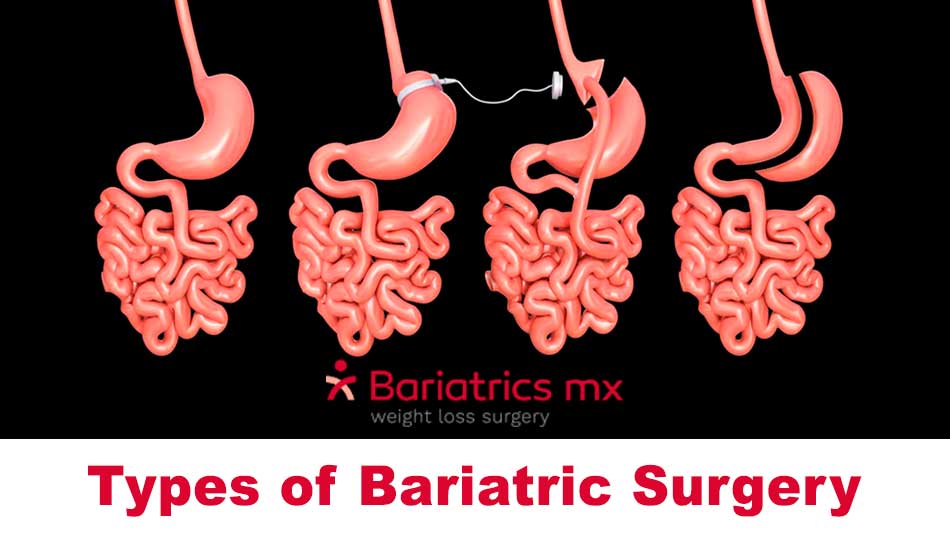Bariatric surgery has become a game-changer for individuals struggling with severe obesity and its associated health risks. This type of surgery isn’t just about weight loss—it’s a comprehensive approach to improving overall health and quality of life. In this guide, we’ll explore the most common bariatric procedures, how they work, their benefits and risks, and what to expect during the journey. Whether you’re considering bariatric surgery or just curious about the options, this guide is designed to give you a clear, actionable understanding of each procedure.
Understanding bariatric surgery
Bariatric surgery, often referred to as weight-loss surgery, encompasses various procedures designed to help individuals lose significant weight. These surgeries alter the digestive system to limit food intake, reduce calorie absorption, or both. While diet and exercise are essential for weight management, bariatric surgery offers a solution for those who haven’t achieved success through conventional methods and face serious health challenges due to obesity.
How bariatric surgery works
The main goal of bariatric surgery is to create physical changes in the digestive system. These changes help individuals feel full faster, consume fewer calories, and in some cases, alter hormonal signals that regulate appetite and metabolism.
Most common types of bariatric surgery
Gastric bypass
How it works
Gastric bypass, also known as Roux-en-Y gastric bypass, involves creating a small pouch at the top of the stomach and rerouting the small intestine to connect directly to this pouch. This significantly reduces the amount of food the stomach can hold and limits calorie absorption.
Advantages
- Rapid weight loss: Patients typically lose 60–80% of their excess weight within the first year.
- Improved health conditions: Many see significant improvements in type 2 diabetes, hypertension, and sleep apnea.
- Long-lasting results: Gastric bypass often leads to sustained weight loss over the years.
Disadvantages
- Nutritional deficiencies: Reduced absorption of nutrients like iron, calcium, and vitamins B12 and D requires lifelong supplementation.
- Complex procedure: Gastric bypass is more invasive compared to other surgeries.
- Potential complications: These include dumping syndrome, where food moves too quickly through the digestive system, causing nausea and weakness.
Gastric sleeve
How it works
During a gastric sleeve, a large portion of the stomach is removed, leaving a banana-shaped tube or “sleeve.” This reduces the stomach’s capacity and decreases hunger hormones like ghrelin.
Advantages
- Simpler procedure: It’s less invasive than gastric bypass, with a lower risk of complications.
- Effective weight loss: Patients typically lose 50–70% of excess weight.
- Improved health markers: Conditions like diabetes and hypertension often improve.
Disadvantages
- Irreversible: Unlike adjustable gastric banding, the procedure cannot be reversed.
- Potential for heartburn: Some patients report increased acid reflux post-surgery.
- Weight regain risk: Although less common, patients may regain weight without long-term lifestyle changes.
Adjustable gastric banding
How it works
This procedure involves placing an adjustable band around the upper part of the stomach. The band creates a small pouch that limits the amount of food a person can eat. The band can be tightened or loosened over time through a port placed under the skin.
Advantages
- Reversible and adjustable: The band can be removed or adjusted as needed.
- Fewer nutritional deficiencies: Unlike bypass or sleeve procedures, food is digested normally.
- Lower complication risk: It’s one of the least invasive bariatric surgeries.
Disadvantages
- Slower weight loss: Patients lose weight more gradually compared to other procedures.
- Frequent follow-ups: Regular adjustments are needed to maintain effectiveness.
- Risk of complications: These include band slippage or erosion into the stomach lining.
Duodenal switch
How it works
This complex procedure combines aspects of gastric sleeve surgery with intestinal bypass. A large portion of the stomach is removed, and the remaining part is connected to the lower portion of the small intestine, bypassing most of it. This drastically reduces calorie and nutrient absorption.
Advantages
- Maximum weight loss: Patients often lose 70–90% of excess weight.
- Improved metabolic health: It’s highly effective for resolving type 2 diabetes and other obesity-related conditions.
- Long-term results: Weight loss tends to be maintained over decades.
Disadvantages
- High risk of deficiencies: Patients require strict adherence to vitamin and mineral supplementation.
- Complex surgery: It has a higher risk of complications and requires a longer recovery time.
- Digestive issues: Many patients experience frequent bowel movements and gas.
Benefits and risks of bariatric surgery
Benefits
Bariatric surgery offers life-changing benefits beyond weight loss:
- Improved health: Many see remission in type 2 diabetes, reduced blood pressure, and better heart health.
- Enhanced quality of life: Mobility improves, and energy levels rise.
- Increased longevity: Studies show that bariatric surgery can extend life expectancy in individuals with severe obesity.
Risks
While generally safe, bariatric surgery carries risks such as infection, bleeding, and complications related to anesthesia. Long-term risks may include malnutrition, hernias, or bowel obstructions.
Who qualifies for bariatric surgery?
Bariatric surgery is a medical intervention designed for individuals who struggle with severe obesity and whose health is at risk due to excess weight. However, not everyone qualifies for this life-changing procedure. Eligibility is determined based on specific medical criteria and thorough evaluations conducted by healthcare professionals.
Common qualifications
- Body mass index (BMI):
- A BMI of 40 or higher generally indicates severe obesity, making a person a strong candidate.
- Individuals with a BMI of 35–39.9 may qualify if they have obesity-related health conditions such as type 2 diabetes, hypertension, or sleep apnea.
- Failed weight loss attempts:
- Candidates must demonstrate that they’ve made serious attempts to lose weight through traditional methods like diet, exercise, and medication without achieving long-term success.
- Health risks:
- Obesity-related conditions that threaten overall health or reduce life expectancy—such as heart disease, joint pain, or liver disease—often make surgery a medically necessary option.
Psychological readiness
Before undergoing surgery, it’s crucial to evaluate the patient’s mental and emotional state. Bariatric surgery requires lifelong changes in eating habits and lifestyle, which can be mentally challenging. Patients with untreated eating disorders or severe psychological conditions may need additional support before qualifying.
Age considerations
While most bariatric surgery patients are between 18 and 65 years old, exceptions can be made:
- Adolescents may qualify under strict guidelines if obesity severely impacts their health.
- Older adults may also be considered if their overall health allows for safe surgery.
Commitment to change
A critical factor in qualifying is the patient’s willingness to commit to significant lifestyle changes. Long-term success depends on adhering to dietary guidelines, regular exercise, and follow-up medical care. Healthcare providers often require patients to participate in educational programs or counseling to prepare them for the journey ahead.
Preparation and recovery process
Preparation: setting the stage for success
Preparing for bariatric surgery involves several steps designed to ensure safety, improve outcomes, and set realistic expectations:
- Comprehensive medical evaluation:
- A team of healthcare professionals, including surgeons, nutritionists, and psychologists, assesses the patient’s overall health.
- Tests such as blood work, imaging studies, and cardiac evaluations may be required to confirm fitness for surgery.
- Weight loss before surgery:
- Many surgeons recommend losing 5–10% of body weight before the procedure. This helps reduce liver size, lowering the risk of complications during surgery.
- A pre-surgery diet often includes high-protein, low-carb meals and liquid-only phases closer to the operation date.
- Smoking cessation:
- Smoking can increase the risk of complications like poor wound healing and infections. Patients are required to quit smoking several weeks before surgery.
- Mental health preparation:
- Counseling sessions help patients understand the emotional and psychological challenges they may face. These sessions address issues like body image, self-esteem, and food addiction.
- Setting realistic expectations:
- Patients are educated on the expected weight loss timeline and the changes they’ll need to sustain their results. This includes embracing new eating habits and physical activity.
Recovery: What to expect after surgery
- Hospital stay:
- Most bariatric surgeries require a hospital stay of 1–3 days, during which medical staff monitor vital signs and manage pain.
- Dietary progression:
- Recovery involves transitioning through several dietary phases over 6–8 weeks:
- Liquid phase: Initially, only clear liquids like broth or water are allowed.
- Pureed phase: Gradually, foods like mashed vegetables and yogurt are introduced.
- Soft foods: Lean proteins and soft vegetables become staples as the stomach adjusts.
- Solid foods: Finally, patients adopt a nutrient-rich, portion-controlled diet.
- Recovery involves transitioning through several dietary phases over 6–8 weeks:
- Physical activity:
- Gentle movement, like walking, is encouraged as soon as possible after surgery to prevent blood clots and promote healing.
- Over time, patients build up to more vigorous exercise to maintain weight loss.
- Managing side effects:
- Patients may experience nausea, fatigue, or changes in bowel habits during the first few weeks. These symptoms typically subside as the body adapts.
- Regular follow-ups:
- Long-term success requires frequent check-ins with the healthcare team. These visits monitor weight loss progress, address nutritional needs, and adjust supplements like vitamins and minerals.
- Emotional adaptation:
- Adjusting to life post-surgery can be challenging. Support groups and counseling sessions help patients navigate feelings of isolation, stress, or frustration.
Real-life impact of bariatric surgery
For many, bariatric surgery is more than a medical procedure—it’s a new beginning. Patients often share stories of regaining confidence, improving relationships, and pursuing goals they thought were unattainable. With proper guidance and commitment, bariatric surgery can transform lives.











